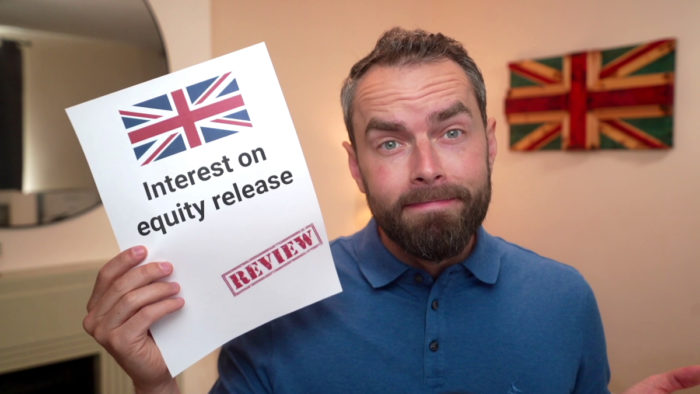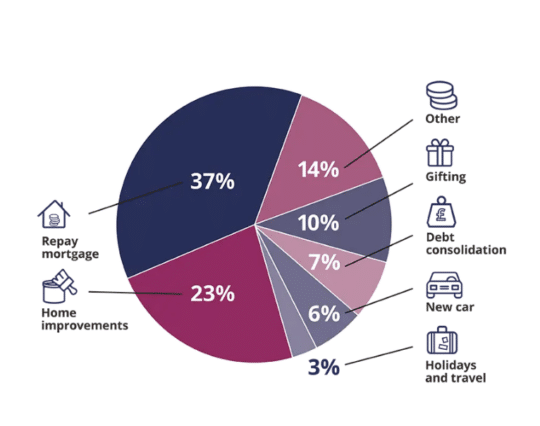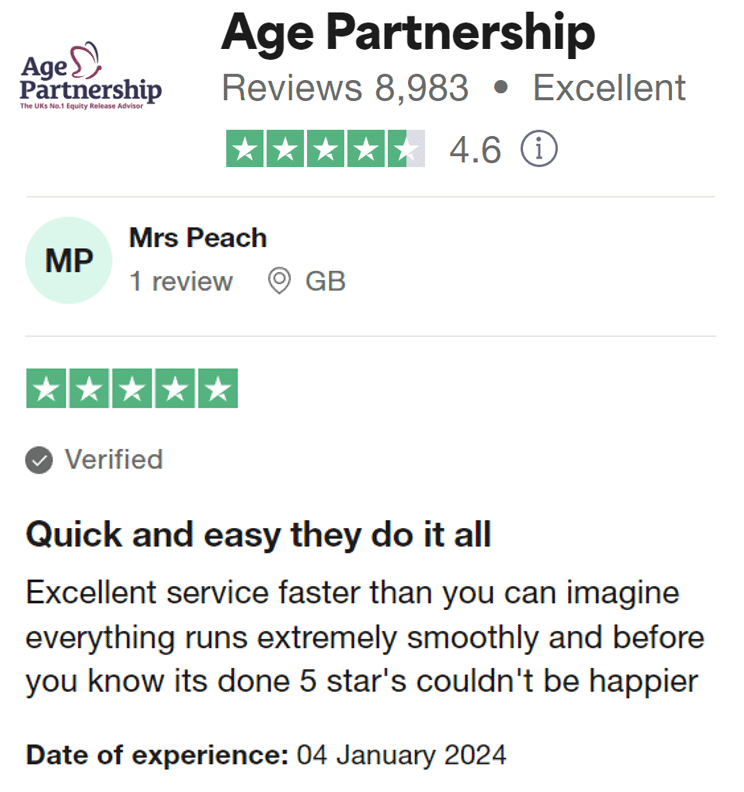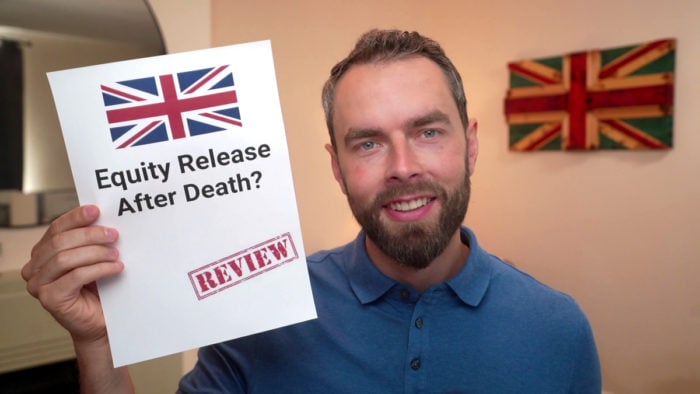Interest Only Equity Release? All you Need to Know
Our preferred equity release adviser is Age Partnership. For free and impartial money advice you can visit MoneyHelper.

Our preferred equity release adviser is Age Partnership. For free and impartial money advice you can visit MoneyHelper.
“Are you curious about the idea of interest-only equity release? You’re not alone. Each month, more than 7,000 folks come to us for clear, easy-to-understand information about this special kind of mortgage.
Here’s what we’ll cover today:
- Understanding equity release.
- Risk factors for your home’s equity.
- The true purpose of equity release.
- How to get a realistic quote.
- Paying interest when releasing equity.
We know that the process of equity release can seem tricky, but there’s no need to worry. We’re here to help, and we’ve got plenty of helpful tips and guides to walk you through it all.
We know equity release is a big decision, so you want to make the right choice for your home and your future. That’s why we make sure our advice is based on facts, not guesses. Stay with us, and let’s explore the world of interest-only equity release together.”
What is an interest-only lifetime mortgage?
Lifetime mortgages can be found with slight variations. One variation is an interest-only lifetime mortgage, also known as a retirement interest-only mortgage.
An interest-only lifetime mortgage works in the same way as described above, but the homeowner commits to making monthly interest payments for as long as they live in their home.
By making monthly interest payments across the lifetime of the mortgage deal, the amount owed from the eventual sale proceeds will always be the same as the amount taken out in the beginning.
An interest-only lifetime mortgage is a good way to ensure the majority of your property value gets passed on to loved ones when you die, which is unlikely if you do not make monthly payments to clear the interest. However, you will need to prove that you can keep up with the monthly payments of interest. Sometimes the lender will allow you to stop making interest payments and allow the debt to grow as per a standard lifetime mortgage.
How much do I have to repay monthly with an interest-only lifetime mortgage?
Most lenders grant the homeowner complete control over the amount of interest they repay each month. Many choose to make full monthly payments to clear the interest to maintain a level of lifetime mortgage debt. However, others choose to repay a smaller amount of interest each month.
Because the Financial Conduct Authority decided that no affordability checks are required on voluntary interest repayments, it is only right that the homeowner has the power to reduce or stop making these repayments.
Do you pay interest on releasing equity?
The most common method of equity release is a lifetime mortgage. When you take out a lifetime mortgage, the amount you release is subject to interest. The interest rate charged is usually fixed for the entirety of the lifetime mortgage.
We discuss lifetime mortgages in detail shortly.
What is the interest rate on equity release?
The lowest lifetime mortgage and retirement interest-only mortgage rates are set between 3% and 8%. However, this is subject to change.
When you search for a lifetime mortgage with your financial adviser they may show you an equity release calculator that projects your total debt over different time periods. These projections can be manipulated by making monthly repayments on the interest or not.
How equity release could help
More than 2 million people have used Age Partnership to release equity since 2004.
How your money is up to you, but here’s what their customers do…
Find out how much equity you could release by clicking the button below.
In partnership with Age Partnership.
Should I pay interest during my lifetime mortgage?
There may be arguments for and against using an interest-only lifetime mortgage over standard lifetime mortgages. Ultimately, a financial adviser should assess your specific situation to make a recommendation. Opt for an independent adviser who is regulated by the Financial Conduct Authority.
By making interest repayments, you are keeping your total debt down and safeguarding more of your home’s value when it comes to being sold, which could significantly increase the amount you pass on to loved ones.
If your debt has already grown to an equal level of the property value, it will not be worth starting to make interest payments if you are covered by the negative equity guarantee. As you cannot be made to pay any debt above the sale proceeds, repaying the interest would not be financially advantageous as the debt would only remain the same – not go down.
If you do not have anyone to pass your estate to, then making interest repayments may not be worthwhile at all. As your home cannot be repossessed if you don’t make repayments, making them is not likely to offer a substantial benefit unless you end up moving into care with no savings remaining. This is best discussed with an equity release adviser.
» TAKE ACTION NOW: Find out how much equity you could release
What are the advantages of interest-only lifetime mortgages?
The benefits of choosing an interest-only equity release are:
- The money you receive is not taxed.
- You can receive it as a lump sum.
- It can be spent on anything you prefer.
- You continue living at home and are not asked to sell unless you move into long-term care.
- You can pay off some of the debt to pass on more of your property value to loved ones.
- You have control over interest repayments.
What are the disadvantages of interest-only lifetime mortgages?
The disadvantages of an interest-only mortgage of this kind are:
- Interest-only lifetime mortgages are still expensive if you don’t continually pay 100% of the interest each month.
- Using them will reduce the inheritance you pass on regardless of making interest payments.
- You could stop being eligible for means-tested state benefits.
- Missing interest payments or underpaying can quickly cause your total debt to grow.
Join thousands of others who release equity
Age Partnership have helped over 2 million people release equity from their home.

Mrs Wareham
“I am more than pleased to have taken out Equity Release with Age Partnership.”
Reviews shown are for Age Partnership. Search powered by Age Partnership.
Related FAQs
What is an interest-only equity loan?
An interest-only mortgage used to release equity, also called an interest-only equity loan, is a loan secured against your home. It is exclusively available to people over 55 years old to help make retirement more financially comfortable.
The senior homeowner does not need to make repayments on the principal loan amount, i.e. the amount they borrow. But they are required to make interest repayments each month to maintain the same debt they start the loan with.
The principal loan amount is repaid from the eventual sale of the property, which comes when the homeowner moves into long-term care, or after death from their estate.
Can you get an interest-only mortgage?
To qualify for an interest-only mortgage, the youngest homeowner must meet the lender’s minimum age requirement. For these types of equity release plans, the usual minimum age is set at 55. If one of the homeowners is younger than 55, it is best to wait for them to meet the age requirement. Taking their name off the ownership documents of the home to access these plans earlier can be dangerous.
As well as meeting this age requirement, the home must have a minimum value set by each lender. For the most part, the minimum value is around £70,000. And lastly, the home that you want to get an interest-only mortgage on must be your main residence rather than a holiday home or rental investment.
Can I still obtain a mortgage in retirement?
You will not be able to obtain a standard residential mortgage to buy a home once you hit retirement. The only mortgage that tends to be available to people in retirement is a retirement interest-only mortgage, used to release equity from a property that is already owned with or without a small first charge mortgage.
Are means-tested benefits affected by equity release?
Taking out an equity release plan can affect entitlement to some means-tested benefits. This is because releasing equity significantly increases your immediate savings until the money is spent, and can therefore put your savings amount above the threshold to qualify for those benefits.
Your new savings will not affect your entitlement to receive a state pension, but it can wipe out or reduce your entitlement to pension credits. If you can no longer receive pension credits, there is a good chance you won’t be allowed to claim a council tax reduction as well.
Things to consider
Equity release will involve a home reversion or a lifetime mortgage, which is secured against your property and will reduce the value of your estate and impact funding long-term care. Our equity release partner, Age Partnership provides a personalised illustration to explain the full details. The money you release, plus the accrued interest is then repaid when you die or move into long-term care. Advice is required before proceeding with equity release and any existing mortgage must be repaid. Age Partnership provide initial advice for free and without obligation. Only if your case completes would Age Partnership’s advice fee of £1,895 be payable. Other lender and solicitor fees may apply.




